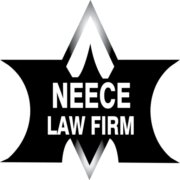Best Collaborative Law Lawyers in North Carolina
Share your needs with us, get contacted by law firms.
Free. Takes 2 min.
Free Guide to Hiring a Family Lawyer
Or refine your search by selecting a city:
List of the best lawyers in North Carolina, United States
About Collaborative Law in North Carolina, United States
Collaborative Law is an alternative dispute resolution process used primarily in family law cases, such as divorce, child custody, and property division. In North Carolina, Collaborative Law offers couples and families a non-adversarial approach to resolve disputes respectfully and privately, without going to court. With this method, both parties are represented by their own trained collaborative lawyers, and all agree to work together openly toward a mutually acceptable resolution. The goal is to reduce conflict, preserve important relationships, and maintain control over decisions, rather than having a judge decide for you.
Why You May Need a Lawyer
Collaborative Law can be an effective way to reach a fair settlement without litigation, but the success of the process depends heavily on legal guidance. You may need a lawyer if:
- You and your spouse or partner are considering divorce but wish to avoid courtroom battles and minimize emotional harm to children.
- You want to address sensitive issues such as child custody, parenting time, child support, alimony, or division of marital assets in a cooperative manner.
- There are concerns about making informed decisions regarding complex assets, debts, and future obligations.
- You need help understanding your legal rights and obligations under North Carolina law.
- You want to ensure all agreements are legally valid and enforceable.
Local Laws Overview
North Carolina recognizes and governs Collaborative Law under the North Carolina General Statutes Chapter 50, Article 4. The law sets out the framework for the process, including participation agreement requirements and the roles of attorneys. Key features include:
- Both parties must sign a written Collaborative Law Participation Agreement with their attorneys.
- If either party initiates court proceedings, the collaborative process must end and new attorneys may need to be appointed if litigation proceeds.
- All communications made during collaborative sessions are confidential and generally cannot be used as evidence in court should the process break down.
- Collaborative Law is voluntary. Either party can end the process at any time.
- Laws require lawyers to be trained in collaborative law to represent clients in this type of process.
This process fosters transparency, voluntary exchange of information, and problem-solving discussions that often result in more satisfactory and lasting outcomes than adversarial court cases.
Frequently Asked Questions
What is Collaborative Law?
Collaborative Law is a legal process where both parties work with their own lawyers in a series of meetings to reach a settlement agreement without going to court. It is commonly used in divorce and family law cases in North Carolina.
How is Collaborative Law different from mediation?
In Collaborative Law, each party is represented by a collaborative-trained attorney, and the parties commit to not going to court. Mediation involves a neutral third party who helps facilitate discussions, and parties may or may not have legal representation. Collaborative Law usually includes more direct legal advice during the process.
Is Collaborative Law legally recognized in North Carolina?
Yes. North Carolina law specifically recognizes and regulates Collaborative Law under General Statutes Chapter 50, Article 4, establishing formal procedures and attorney roles.
What kind of issues can be resolved using Collaborative Law?
Collaborative Law can address divorce, property division, child custody and visitation, child support, alimony, and other family-related matters. Some practitioners also use it for estate, business, and employment disputes.
Who should not use Collaborative Law?
Collaborative Law may not be suitable if there is a history of domestic violence, substance abuse, or significant power imbalances, or if one party is unwilling to participate openly and transparently.
What happens if we cannot reach an agreement through Collaborative Law?
If the collaborative process breaks down, your collaborative attorneys are required to withdraw, and neither party can use those attorneys in future litigation. You may then proceed to court with new legal representation.
Are the agreements reached in Collaborative Law binding?
Yes. Once a settlement agreement is reached and properly documented, it is a binding legal contract. The agreement can also be approved by the court and incorporated into a court order if desired.
How long does the Collaborative Law process usually take?
It varies depending on the complexity of the issues and the willingness of both parties to negotiate. Many cases resolve in three to six meetings, making it significantly quicker than most court cases.
Can we use other professionals in Collaborative Law?
Yes. The collaborative team may include neutral financial specialists, child specialists, or mental health professionals, all working to support a fair and informed agreement.
How do I find a qualified Collaborative Law attorney in North Carolina?
Search for attorneys who have completed collaborative law training and who are members of local or state collaborative law groups. See the resources section below for more information.
Additional Resources
- North Carolina Administrative Office of the Courts - Family Court Programs
- North Carolina Collaborative Attorney Network
- International Academy of Collaborative Professionals
- Local bar associations and legal aid organizations
- North Carolina Bar Association - Dispute Resolution Section
These organizations can help you locate trained collaborative law practitioners and provide useful educational materials about your options.
Next Steps
If you are considering Collaborative Law in North Carolina, review whether this approach fits your needs and those of the other party. Contact qualified collaborative law attorneys to discuss your situation and get more detailed advice. Ask about their experience, costs, and training in Collaborative Law. Schedule an initial consultation to determine your comfort with the process and begin drafting a Collaborative Law Participation Agreement if both parties are agreed. If you have questions or need additional support, reach out to one of the resources listed above or a local court self-help center for further guidance.
Lawzana helps you find the best lawyers and law firms in North Carolina through a curated and pre-screened list of qualified legal professionals. Our platform offers rankings and detailed profiles of attorneys and law firms, allowing you to compare based on practice areas, including Collaborative Law, experience, and client feedback.
Each profile includes a description of the firm's areas of practice, client reviews, team members and partners, year of establishment, spoken languages, office locations, contact information, social media presence, and any published articles or resources. Most firms on our platform speak English and are experienced in both local and international legal matters.
Get a quote from top-rated law firms in North Carolina, United States — quickly, securely, and without unnecessary hassle.
Disclaimer:
The information provided on this page is for general informational purposes only and does not constitute legal advice. While we strive to ensure the accuracy and relevance of the content, legal information may change over time, and interpretations of the law can vary. You should always consult with a qualified legal professional for advice specific to your situation.
We disclaim all liability for actions taken or not taken based on the content of this page. If you believe any information is incorrect or outdated, please contact us, and we will review and update it where appropriate.
Browse collaborative law law firms by city in North Carolina
Refine your search by selecting a city.















